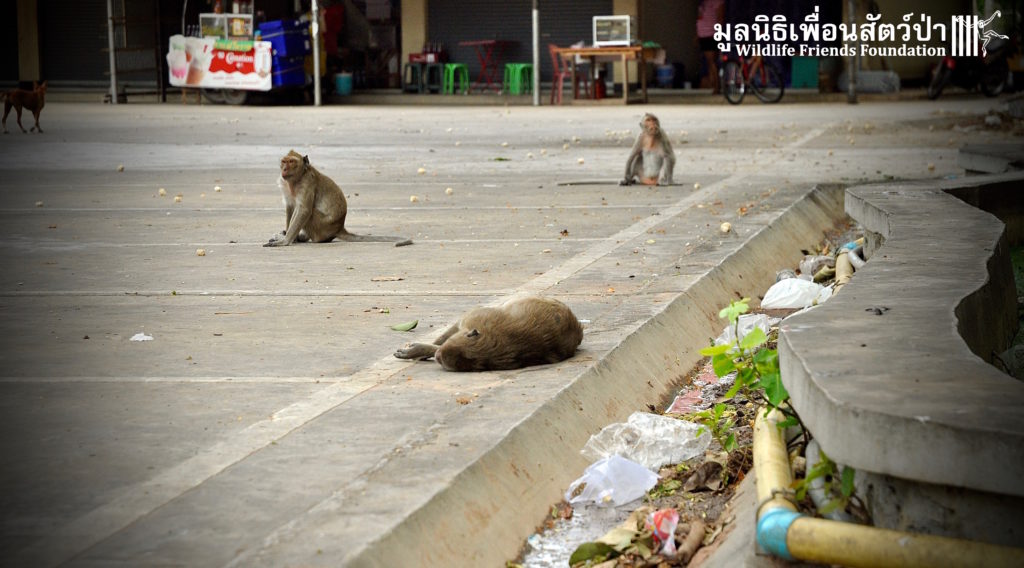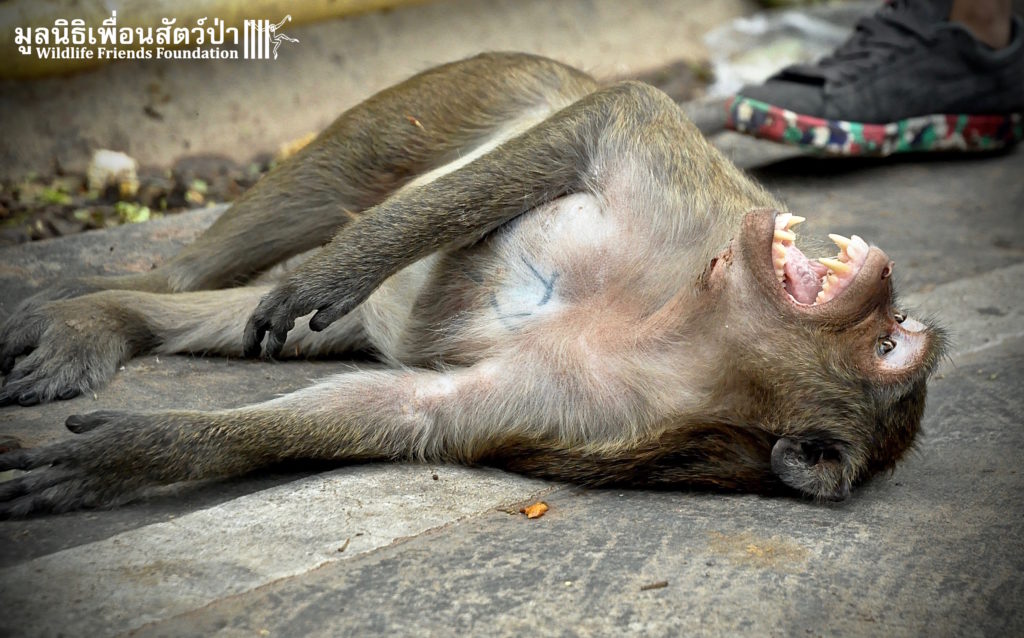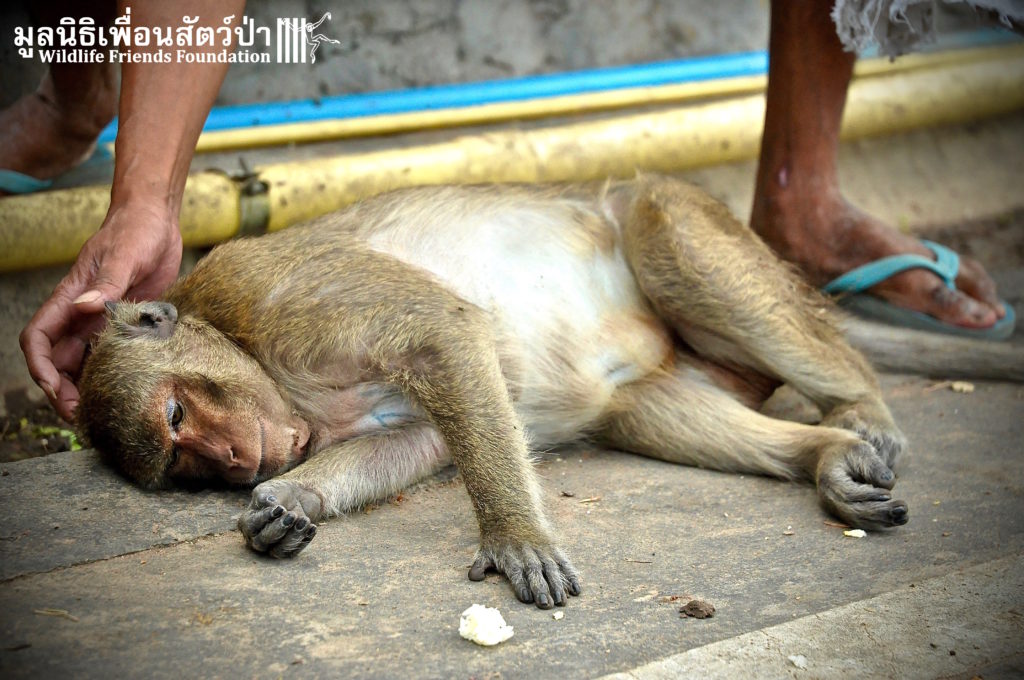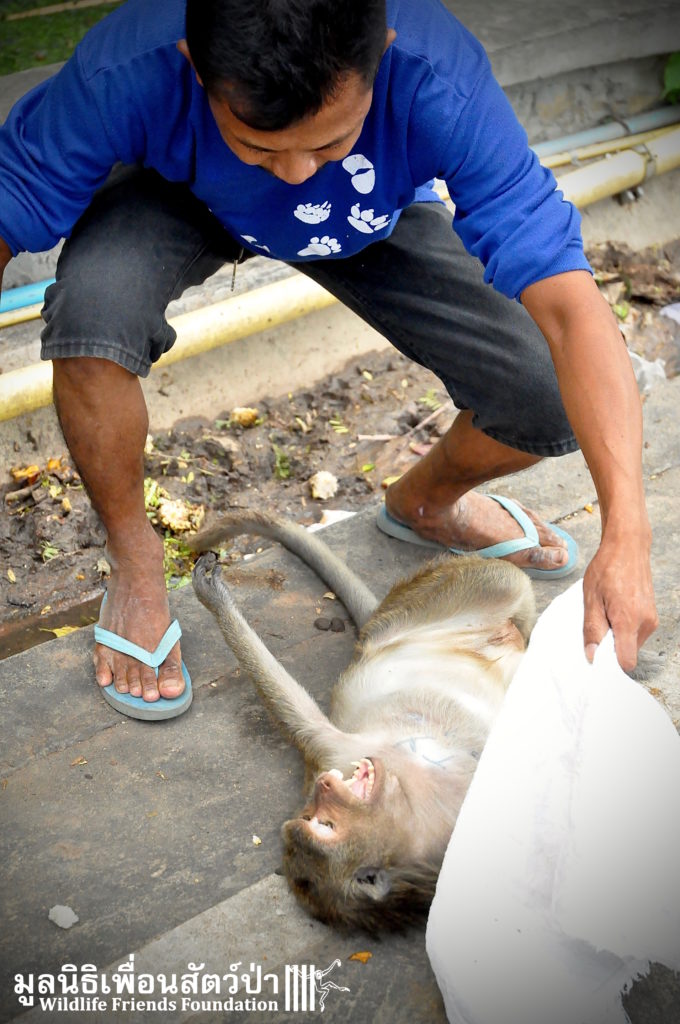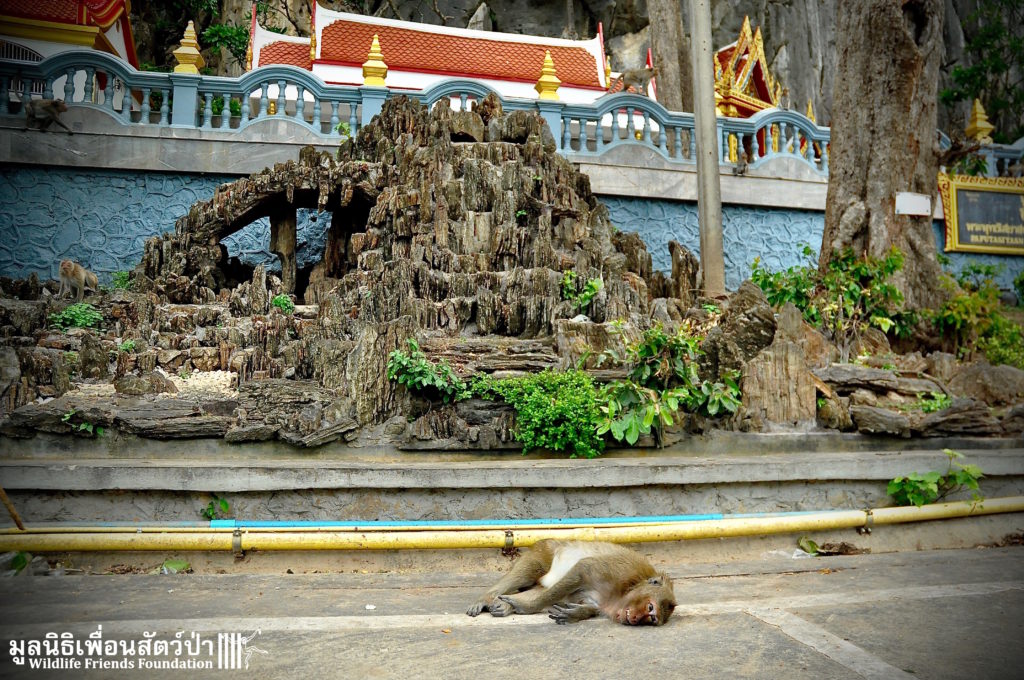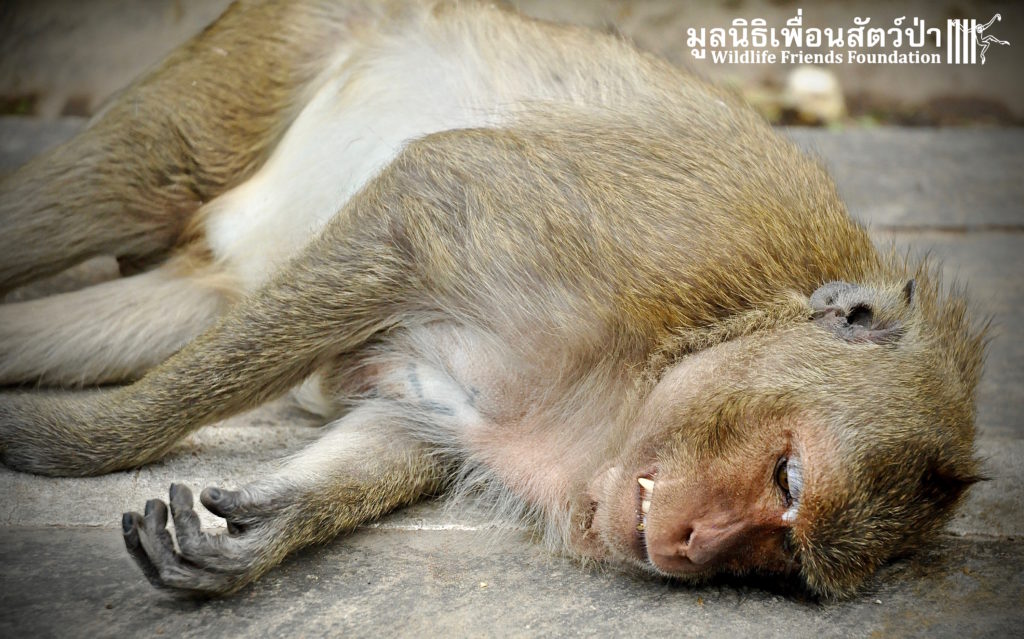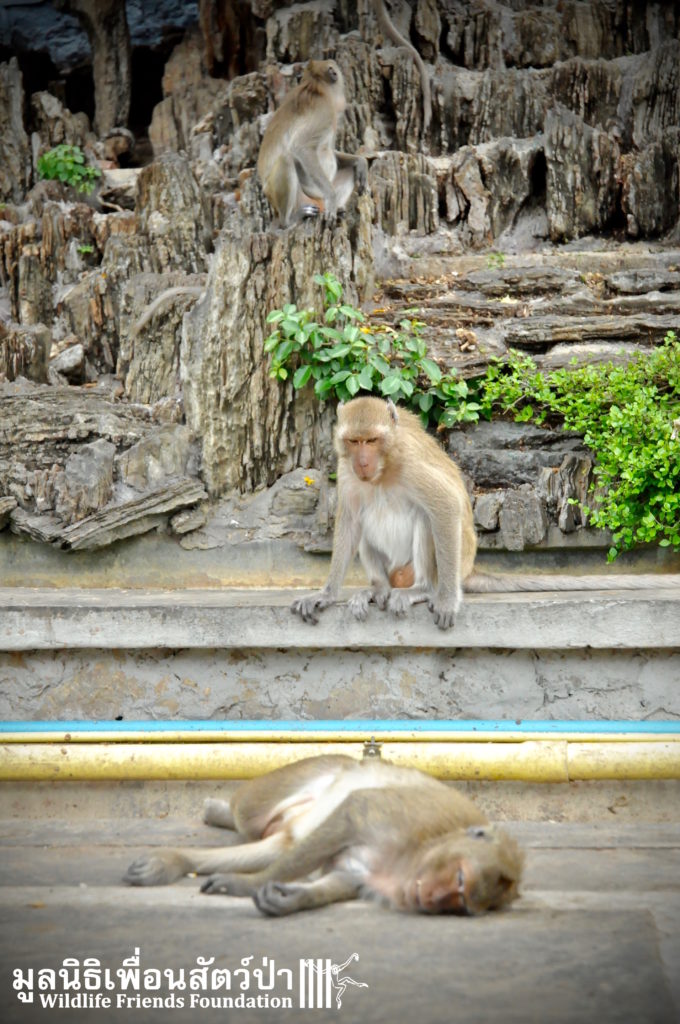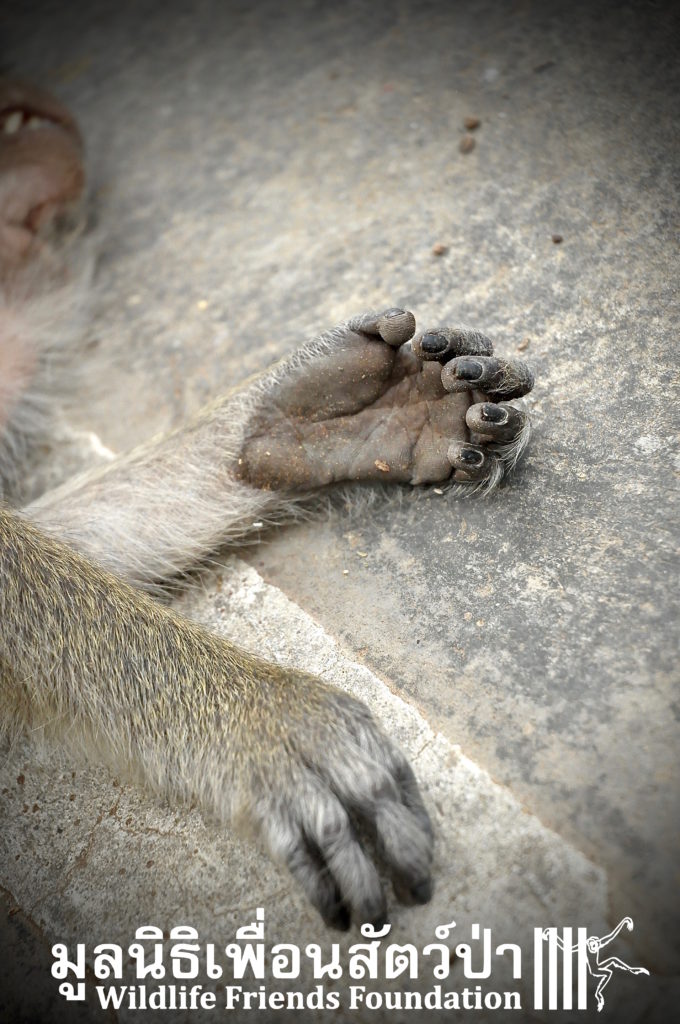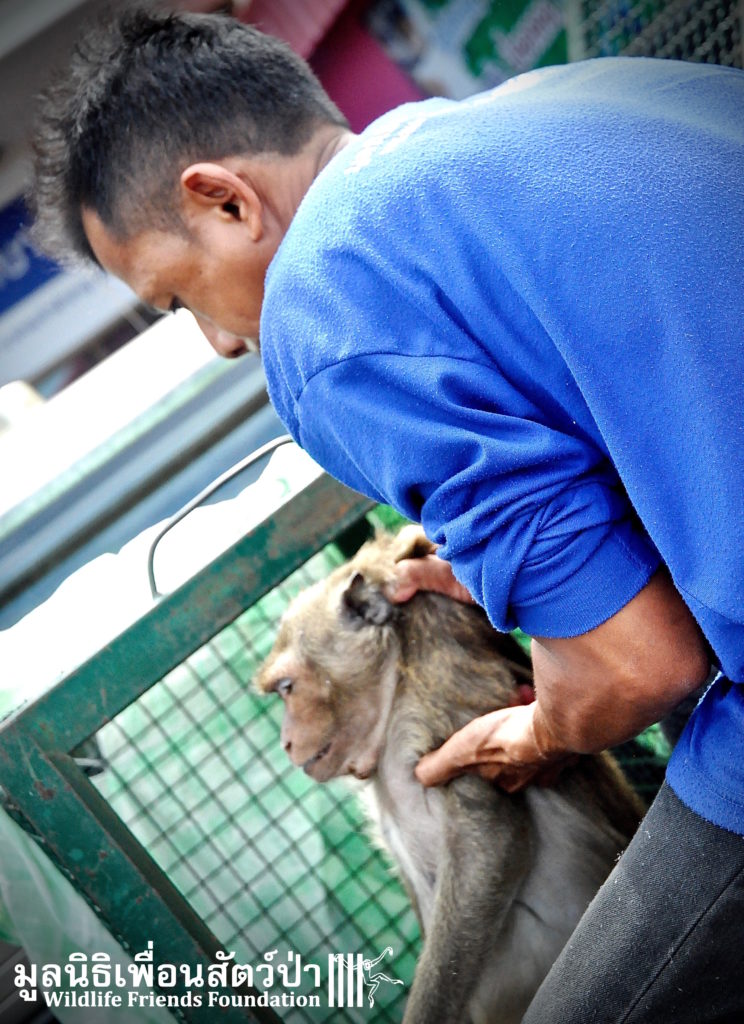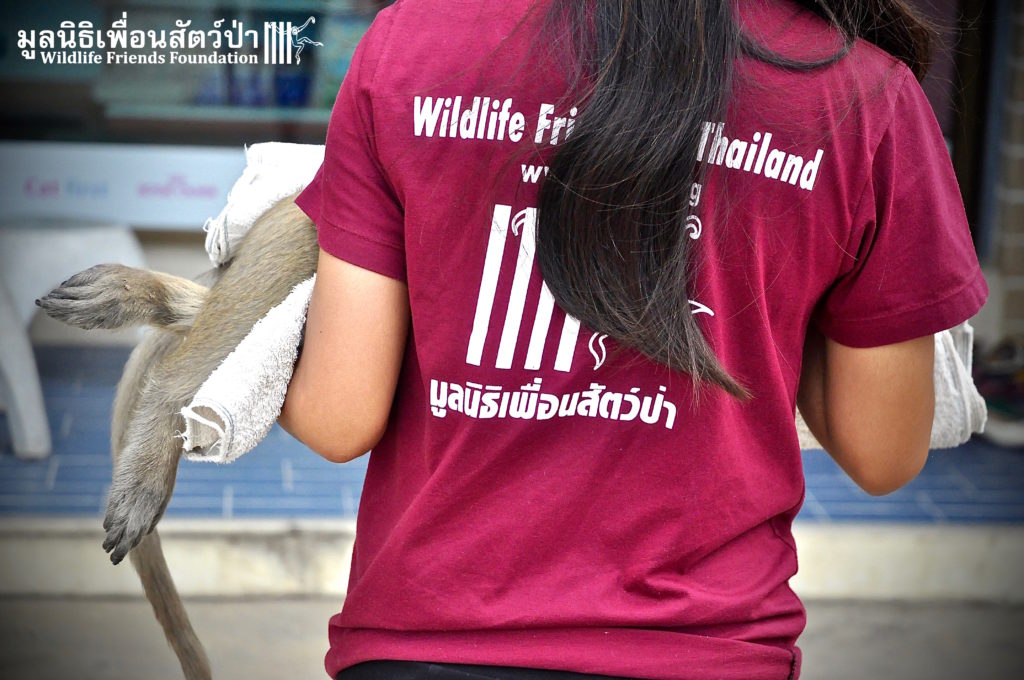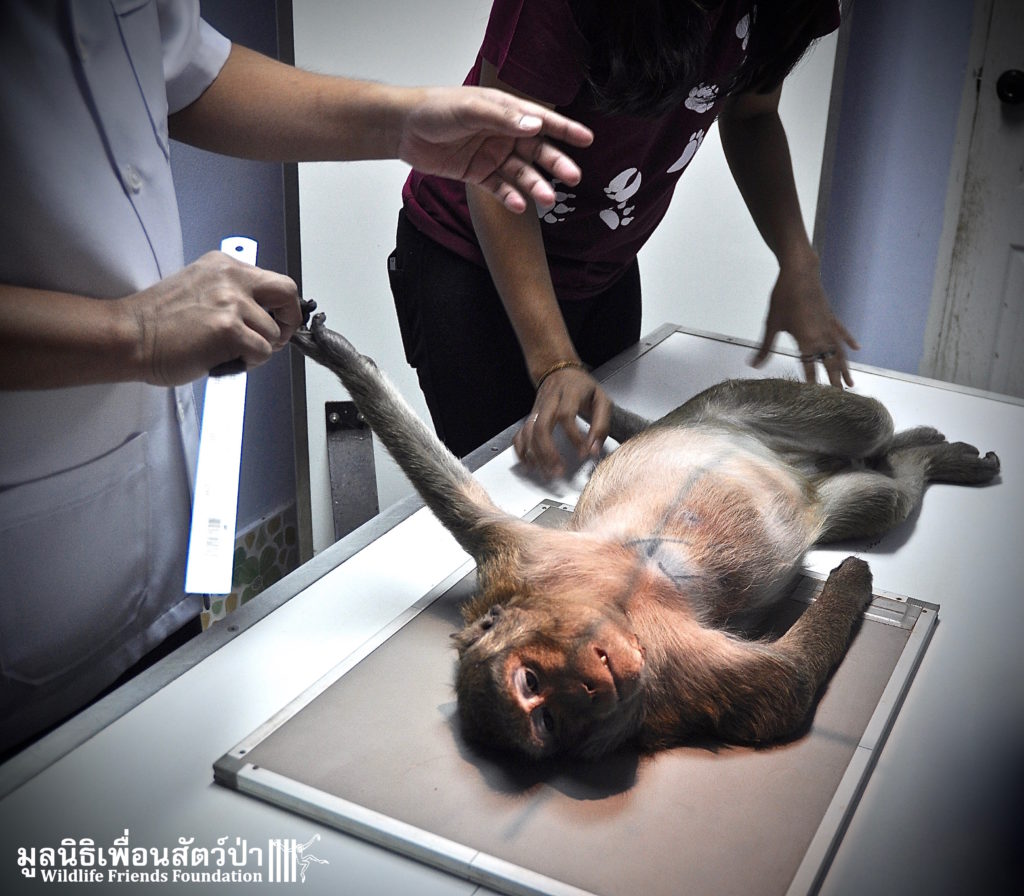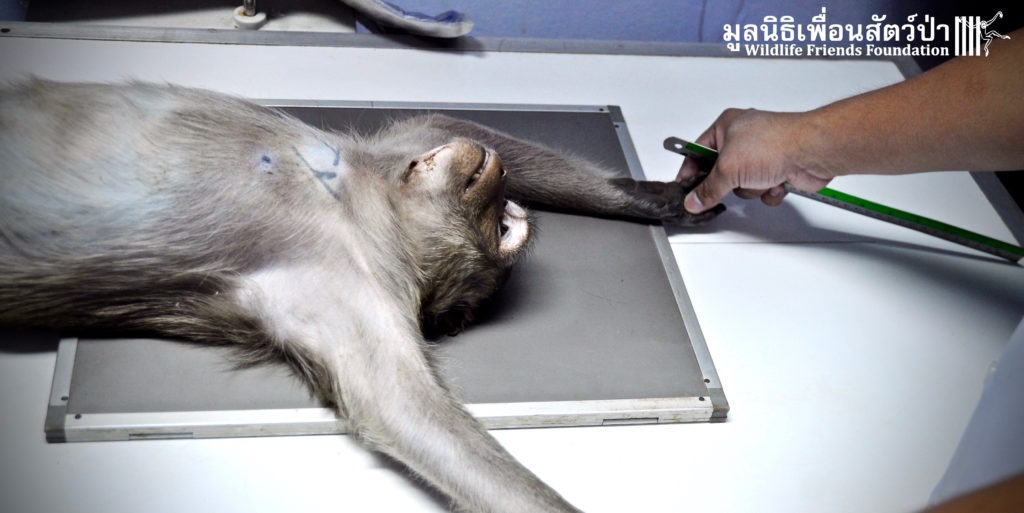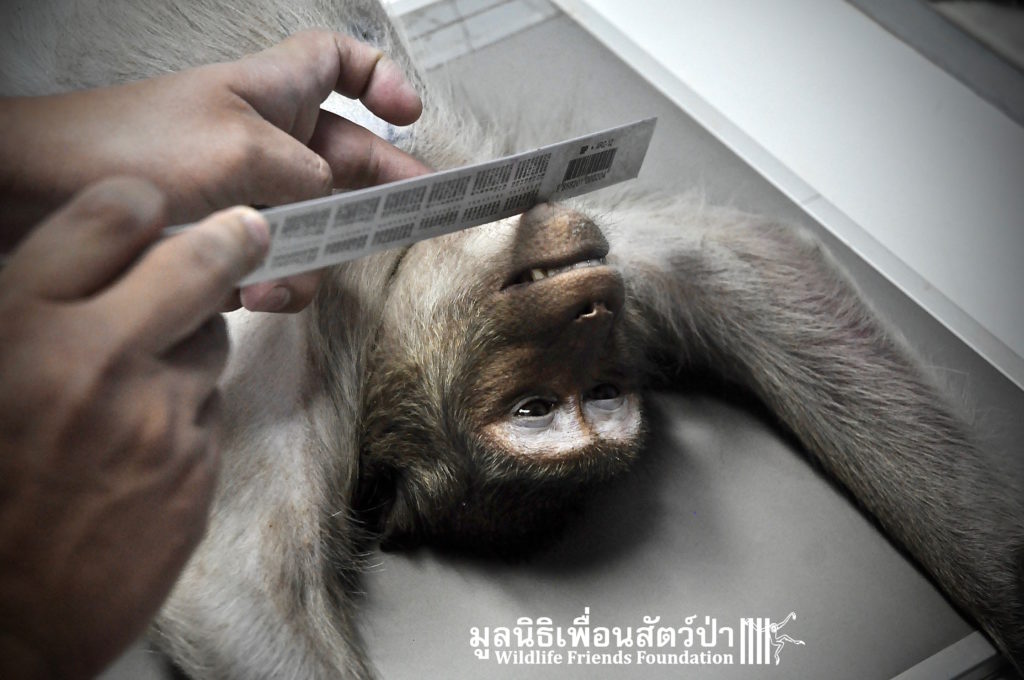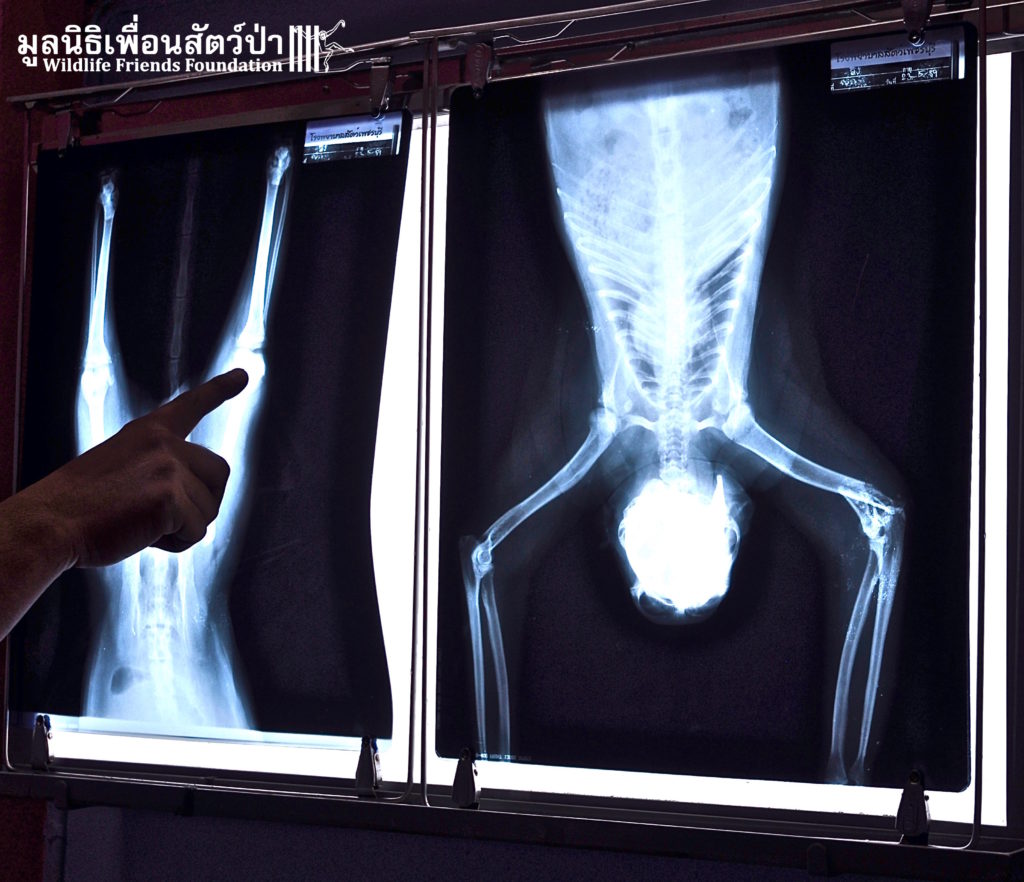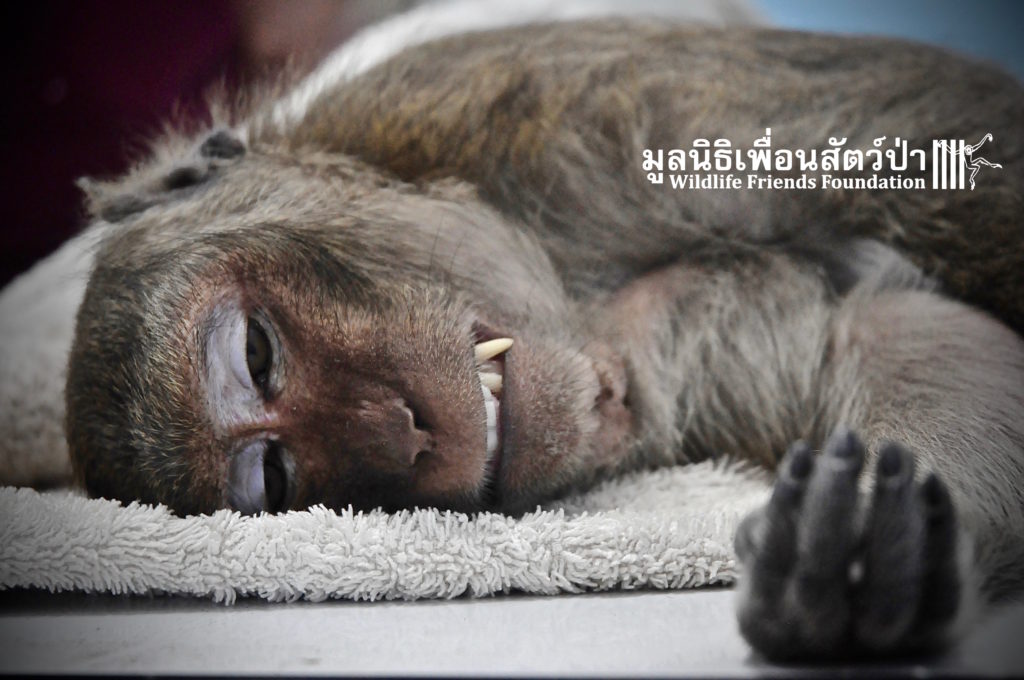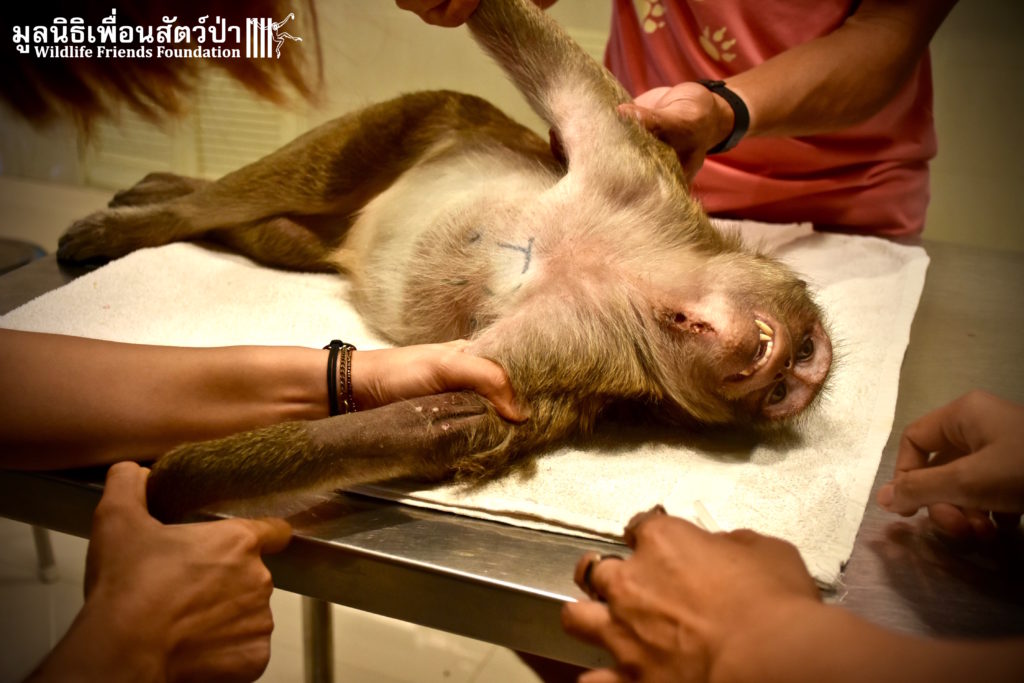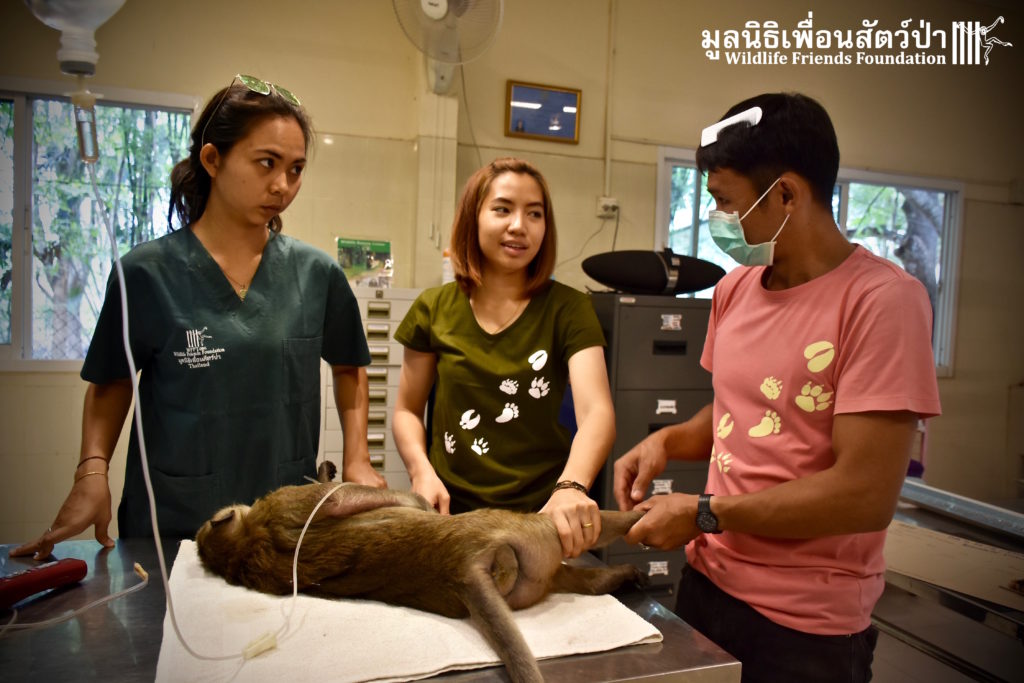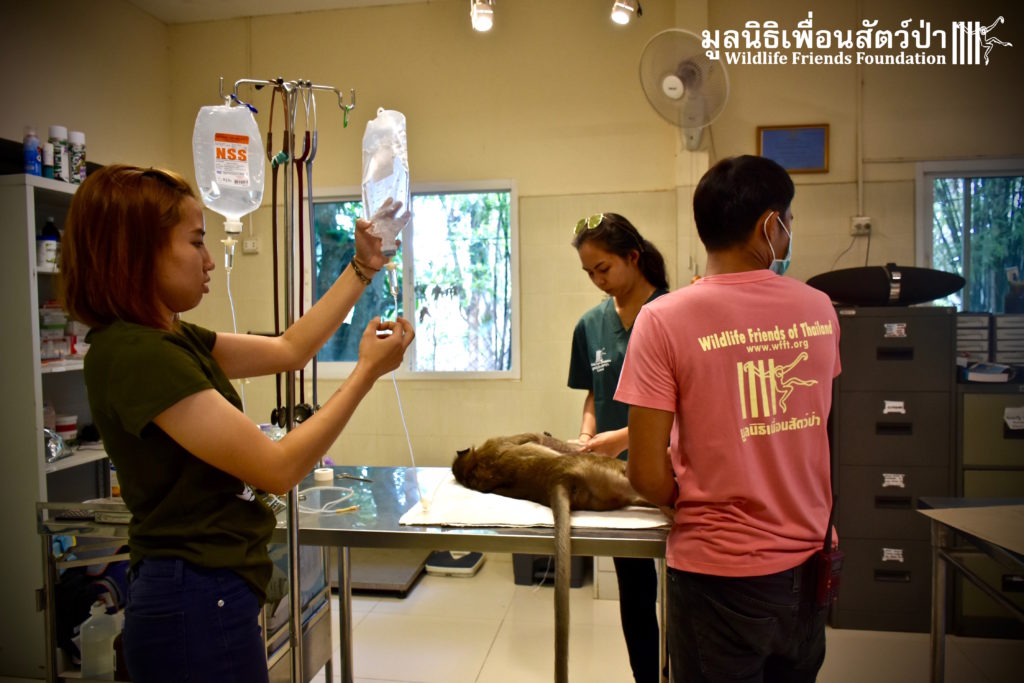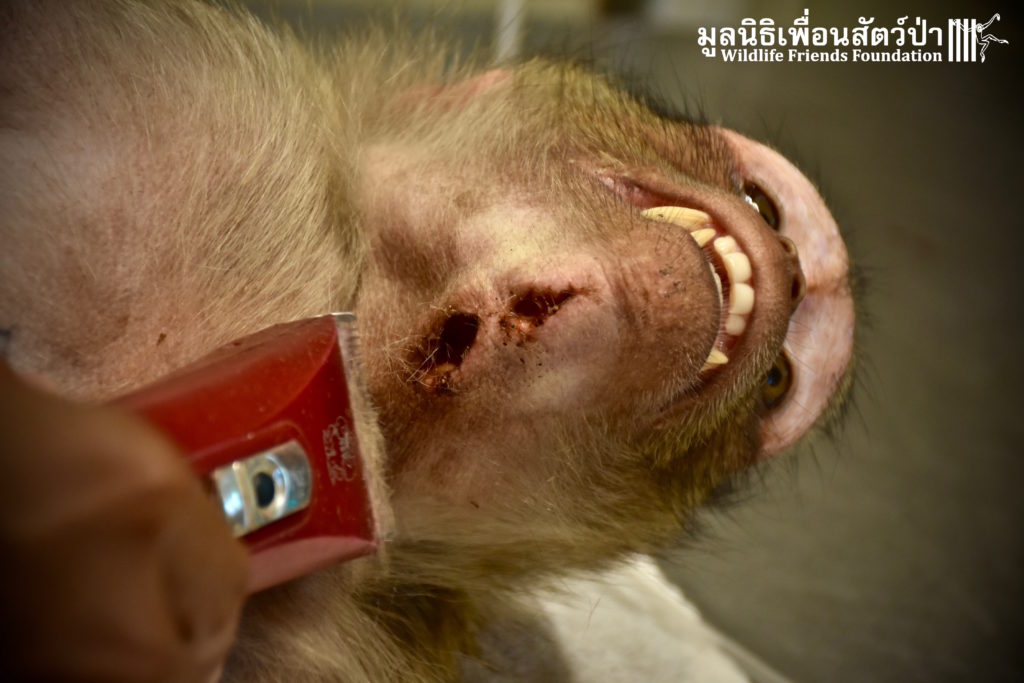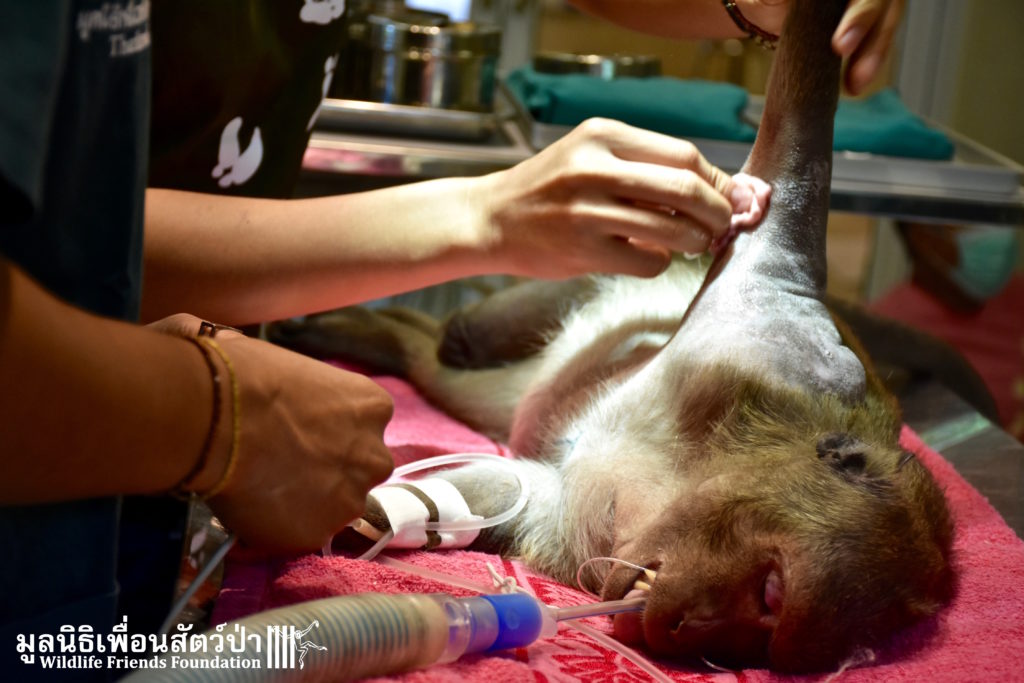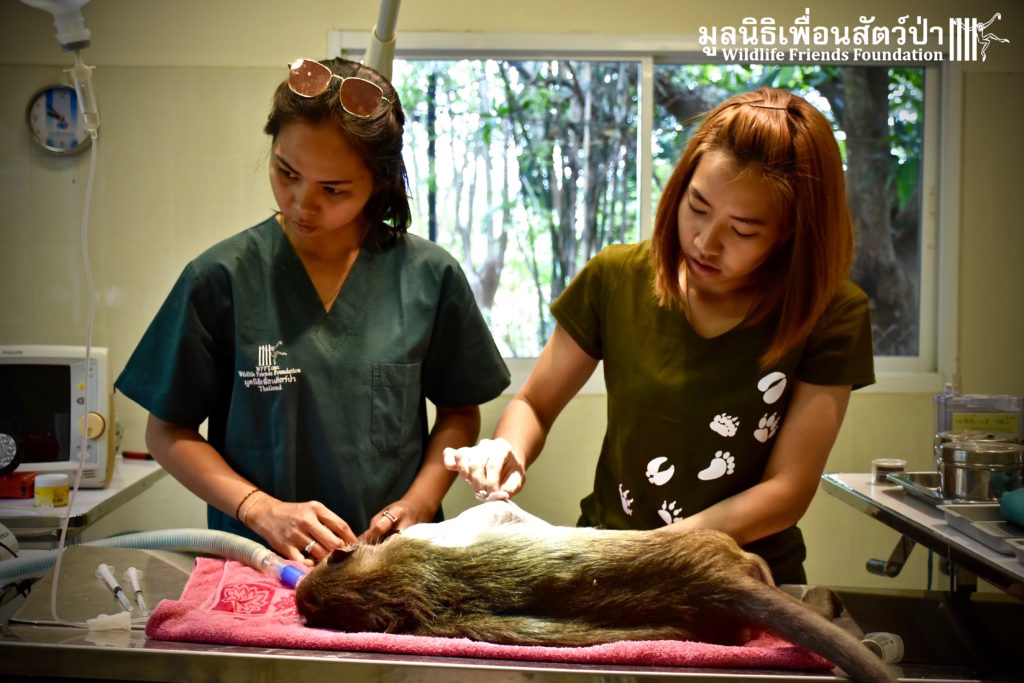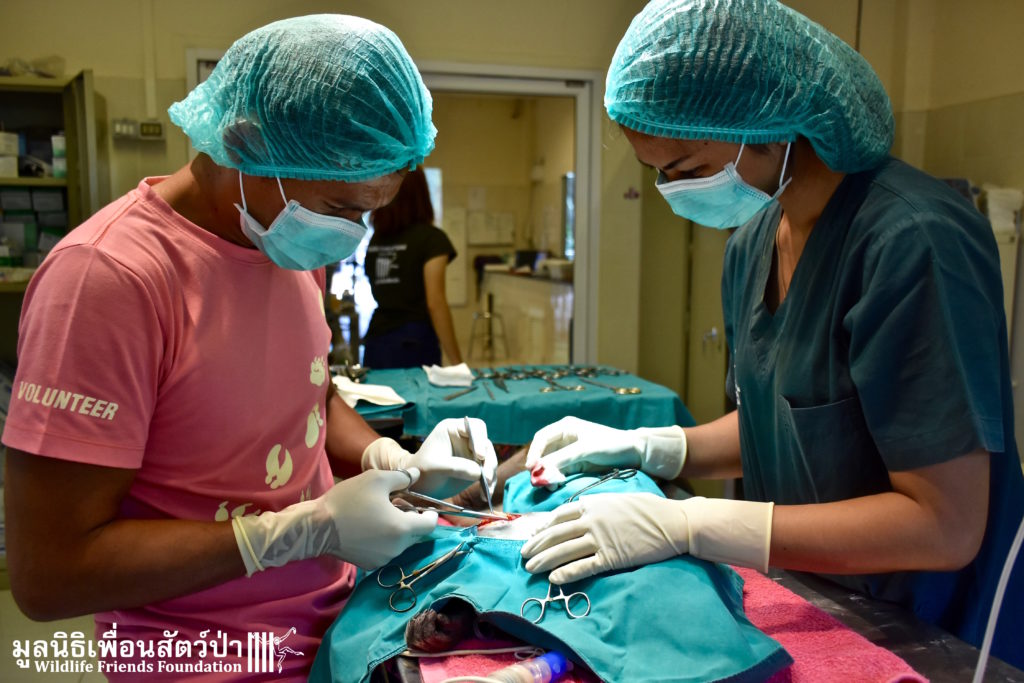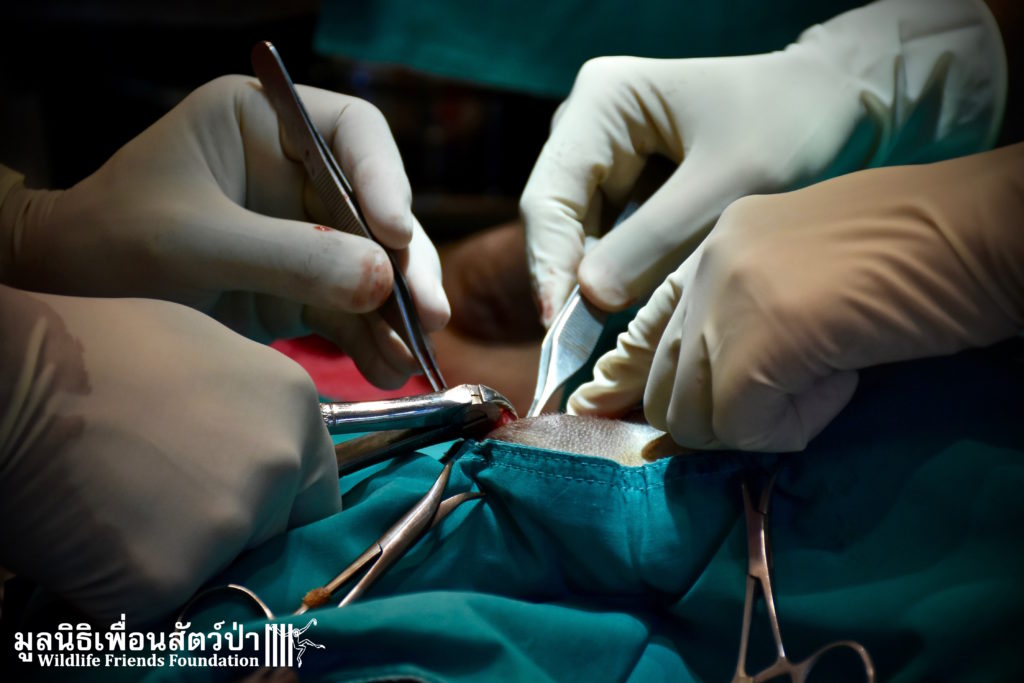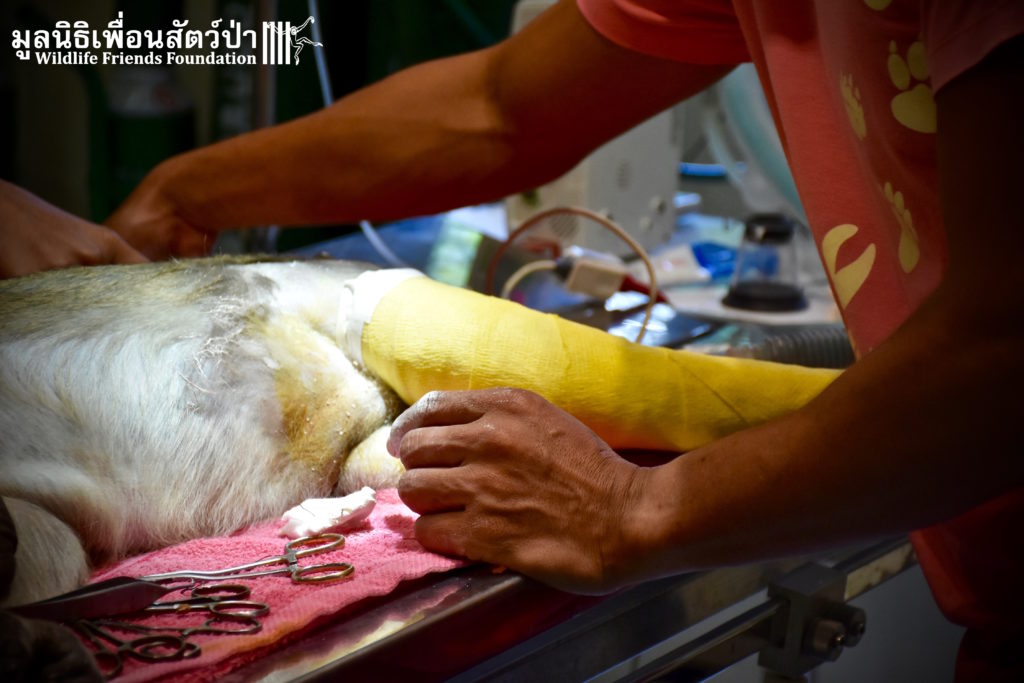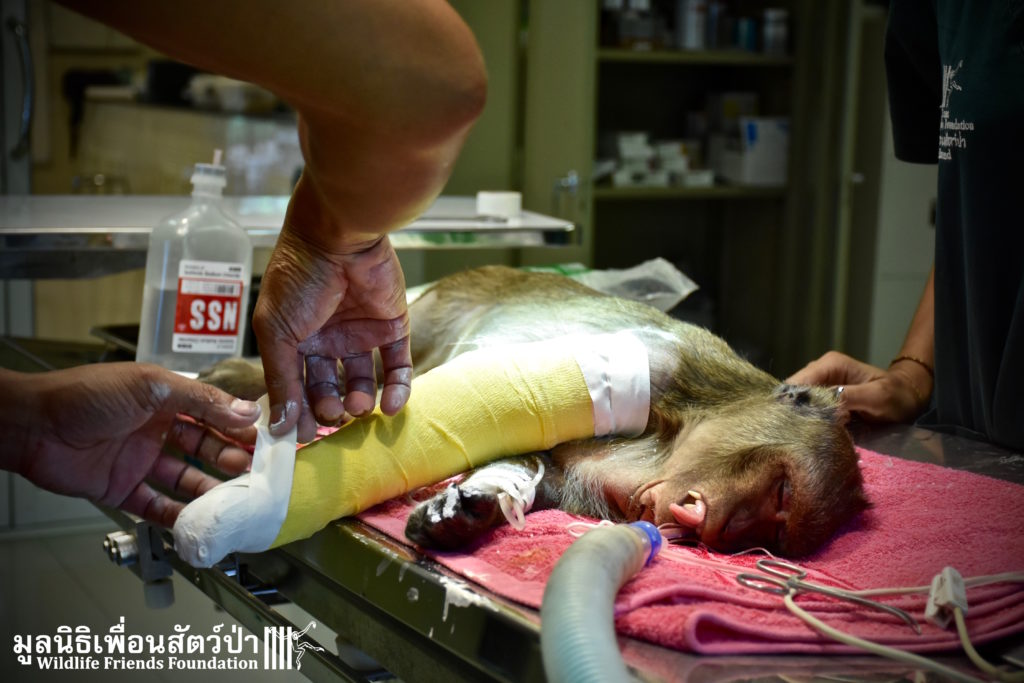A big step forward! An MOU has been signed with the coconut industry and authorities to phase out monkey labour and exploitation in coconut harvesting.
Injured Long-tailed Macaque Arrives at WFFT for Urgent Care
Two days ago we received a call from a compassionate Thai tourist who had seen a macaque in urgent need of help at a temple approximately an hour away from the WFFT Wildlife Rescue Centre. The WFFT Wildlife Rescue Team headed out immediately to try and save him. Upon arrival the team found the adult male long-tailed macaque (Macaca fascicularis) lying on the ground almost motionless. The team investigated further into how this macaque had ended up on the floor with what appeared to be serious injuries. After talking to the monks of the temple, they were told that the macaque had fallen out of tree a few days ago due to heavy rain storms, unable to move from the injuries sustained, he had been lying on the ground since the incident. The monks had tried to feed him and give him water, we were told he did not eat nor drink. The team loaded him into the the rescue vehicle and took him directly to a local veterinary clinic for an x-ray to determine how severe the injuries were. The results of the x-ray show that he has both a severely broken arm and leg. He also has numerous, what look like, bite wounds on his chin, these may have been caused by other monkeys or feral dogs. He was taken straight to the WFFT Wildlife Rescue Centre for treatment.
The long-tailed macaque is listed as Least Concern (LC) by the IUCN Red list of Threatened Species, in view of its wide distribution, presumed large population, tolerance of a broad range of habitats, occurrence in a number of protected areas. Although it is under heavy hunting pressure for the pet trade, meat, sport and trophies, this is not considered a major threat to the species overall. Females are often taken into breeding facilities and males are exported internationally primarily for use in laboratory research. They are regularly persecuted as pests. Habitat loss is also a localised threat, but the species can persist in a variety of habitats and very adaptable.
The WFFT Vet Team performed surgery in an attempt to mend his broken bones. The macaque is currently in intensive care at the WFFT Wildlife Hospital, after recovering from the surgery he is eating and drinking well. We hope that his injuries will mend and he can return home. We will keep you posted on his progress.

